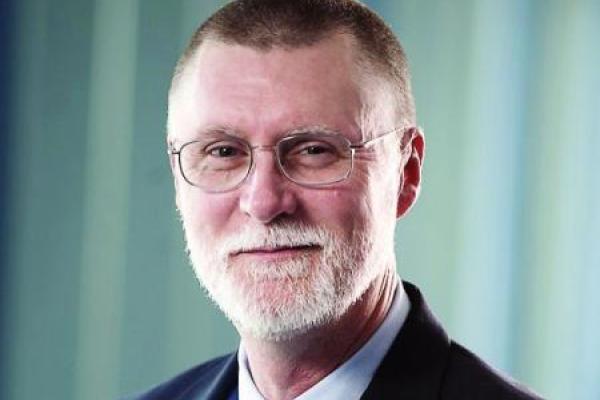Executive Vice President and Provost Bruce A. McPheron on Voices of Excellence podcast

Executive Vice President and Provost Bruce A. McPheron recently sat down with the “Voices of Excellence from the Arts and Sciences" podcast to discuss his work and how Ohio State should be a key leader in student experience and teaching and learning. Below are excerpts from this wide-ranging conversation where McPheron discusses the impact of an Arts and Sciences education, which he calls “the heart of general education principles,” along with the power of collaboration and connection and the future of the college. Listen to the full podcast now or find it at iTunes.
On the value of the Arts and Sciences
Well, if you think about the Arts and Sciences, as a large college, I would argue that I think about it as an extraordinarily diverse college. It really represents the fundamental heart of the disciplines that make any great university.
Ohio State could not succeed without a vibrant, not just healthy, but vibrant College of Arts and Sciences.
And that's our aspiration to work our way to where we have both the shared aspiration and the shared delivery on that aspiration. The history of the college here at Ohio State is one of bringing together disciplines. And I think we're beginning to discover some of the synergies of actually having those disciplines talking to one another.
It's not just bringing a lawyer together with a doctor or bringing someone from business together with someone from agriculture. It's bringing someone in dance together with someone in history, for example, in thinking about the interplay of disciplines. There are lots of nuances to that. The College of the Arts and Sciences here at Ohio State really represents the best possible outcome of doing that at an enormous, comprehensive university. It actually gives a venue for those folks to come together, a reason for them to talk to one another, interact and make connections that they might not ever have the opportunity to do. We talked a little bit about the general education concept. This is the heart of the general education disciplines. Every undergraduate college is going to have something to say that is relevant to a general education. But the fundamental heart is in the College of Arts and Sciences.
On the Arts District as the front door to the university
I'll tell you something that I'm drawn to. We have a plan for capital improvements, building improvements for theatre and for music, and the relatively new discipline of moving image production is part of that whole conversation. And I have actually volunteered to be fundraiser-in-chief for that effort and am engaging with potential donors on a regular basis, because that's the front door to the university at that 15th and High geographic location.
We've focused on Sullivant Hall, and dance has a great space there. We've worked on the visual arts, the Wexner Center for the Arts is there, and the new director, Johanna Burton, is actually committed to being even more a part of the campus art scene. That's a great connector with the community and always has been — we need to make sure that it's connecting into our university’s life as well.
I think that sends a message that having the front door to the university lifted up as something that really is committed to the things that make our hearts and souls sing.
On a vision for the future leadership of the College of Arts and Sciences
I've talked to candidates for executive dean, which I'll point out is also a vice provost in my academic leadership here at the university. It's a unique position: It's the only college-level position that actually sits at that vice provost level within Academic Affairs. They need to believe as strongly as I believe that the future of Ohio State is tied to the vibrancy — I'll go back to that word — of the College of Arts and Sciences. Absent that enthusiasm and the aspiration to be the best in the world, we're not going to have a university that achieves its true potential.
This is an incredibly diverse college from intellectual perspectives as well. And so no individual leader will ever embody all of the different disciplines that make up a college: 38 departments and schools. I'm looking for someone who's a great listener, who really wants to understand, who is incredibly curious about what's going on in different places within that college and can see the connections and see the dots. The ability of a leader to actually train their eyes on the horizon, or occasionally climb up the first rung of the ladder and look over the horizon is something that sometimes our faculty don't have the opportunity to do. And so to have their leader actually thinking about what's next, what haven't we accomplished yet, where could we go, is exactly the kind of perspective that I want these folks to bring.
It's also important for all of our deans to see themselves as citizens of the university, because the colleges don't, in fact, exist alone. It's a constant balancing act in so many different ways. It's the budget questions, it's shared faculty, it's students in majors needing courses from other places.
